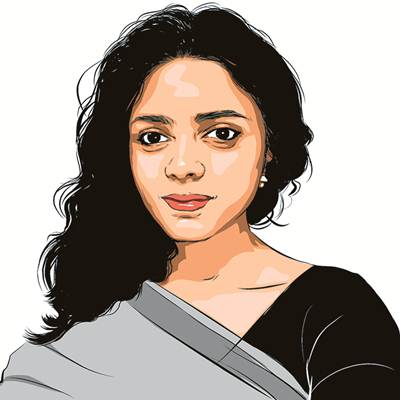Opinion The great OBC data void: Allahabad High Court order on local body elections in UP points to a larger problem
The Supreme Court order could enable BJP’s UP government to nurture its OBC vote bloc. But disputes about OBC numbers may impact assembly elections
 Neither any state government nor the Centre has released any OBC backwardness or even population data.
Neither any state government nor the Centre has released any OBC backwardness or even population data. In the digital age of data mining, Indian politics faces a great void concerning population data of the Other Backward Classes (OBCs). Since the Mandal moment in 1989, OBC politics has had a major impact on the Indian political landscape. Given the absence of OBC population data, on December 27, 2022, the Allahabad High Court asked the Uttar Pradesh government to go ahead with local body elections without the prescribed reservation for OBC seats. The High Court was merely reiterating the “triple test” criteria of 2021, ordered by the Supreme Court bench in the Vikas Kishanrao Gawali case. The judgment laid down the pre-requisite of data on OBC backwardness for political reservation in local bodies. The UP government had hurriedly created a “dedicated OBC Commission” to conduct a survey and moved the Supreme Court on January 4, which granted time till March 31 to provide the requisite data.
Interestingly, neither any state government nor the Centre has released any OBC backwardness or even population data. The matter gained salience after the BJP-led Maharashtra government passed the Socially and Educationally Backward Classes Act to extend reservations to the Maratha community under the OBC category on November 30, 2018. This legislation was passed contrary to the 102nd Amendment to the Constitution passed on August 11, 2018, by the Centre. The Amendment took away states’ power to add or delete communities in the OBC category. Consequently, the Supreme Court invalidated the extension of reservation to Marathas on May 5, 2021, on two counts: First, it breached the 50 per cent limit on reservations and second, it went against the 102nd Amendment. The ensuing political pressure led to Parliament passing the 105th Amendment to the Constitution in August 2021, allowing states to create their own OBC lists.
In the absence of demographic data on OBCs, the Maha Vikas Aghadi government in Maharashtra sought to go ahead with municipal elections in December 2021, with seats reserved for OBC candidates based on Socio Economic and Caste Census (SECC) data. The Supreme Court, in this case too, imposed the “triple test” criterion and the central government denied the use of SECC data citing inconsistencies. Like UP, Maharashtra is a state with no data on OBCs.
The SECC is a curious case – it includes caste data to which the public has no access. The first Socio Economic Caste Census was conducted by the UPA government in 2011, which was more a survey than a census — to get the numbers of people belonging to various castes. But the data was never revealed by the Census Commissioner. By the time the data was compiled in 2014, the BJP-led NDA government chose not to make it public and also denied the use of data regarding OBCs in the Maratha reservation case of 2021.
Subsequently, a data challenge was thrown at governments by successive Supreme Court judgments on OBC reservations. It was only in May 2022 that the Supreme Court allowed OBC-reserved seats in municipal and panchayat elections in the state after the Madhya Pradesh government produced evidence of data. In July 2022, the Gujarat state Election Commission ordered the conversion of 10 per cent of OBC seats to general seats, forcing the state government to announce a dedicated OBC Commission barely four months before the assembly elections. And the OBC population issue was inconclusively argued by the central government in the Maratha reservation case, leaving lawmakers without any data.
The demand for the enumeration of the OBC population became a major political issue after the 103rd Amendment in 2019, under which Parliament granted 10 per cent reservation to Economically Weaker Sections (EWS). The EWS amendment breached the 50 per cent ceiling for reservation. While political parties with a strong base among OBCs initially opposed EWS reservations, they also saw an opportunity in the constitutional breach of the 50 per cent mark. But this has been easier said than done, given that the actual numbers of OBCs are nowhere to be found.
The demand for OBC enumeration in the 2021 decennial Census did not find favour with the central government. Some political parties from Bihar called for a boycott of the Census if OBCs are not enumerated. Currently, Census operations, post-Covid, are at a standstill. After parting ways with the BJP, the Nitish Kumar-led state government of Bihar has pushed for a full-fledged caste census, similar to the SECC, to be completed by May 2023.
The Supreme Court’s upholding of EWS reservations in Janhit Abhiyan, which breached the 50 per cent line, gave a fresh impetus to Jharkhand, Karnataka, Bihar and Chhattisgarh that have either approved or enacted laws for reservations beyond the ceiling — albeit without rigorous OBC data.
The SC order could enable BJP’s UP government to nurture its OBC vote bloc. But disputes on the actual numbers of OBCs may impact upcoming assembly elections.
The writer teaches political science at Allahabad University. Views are personal





